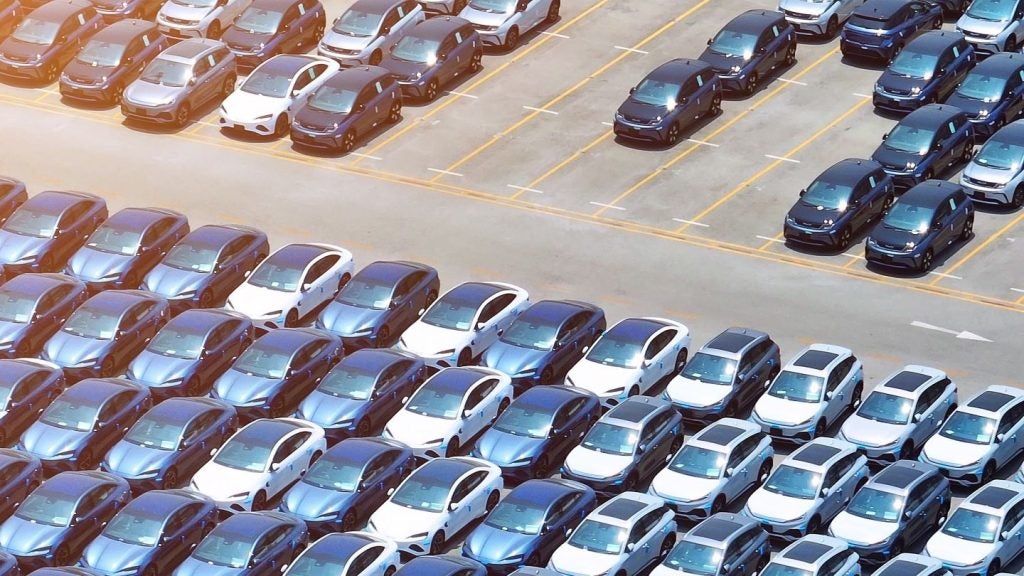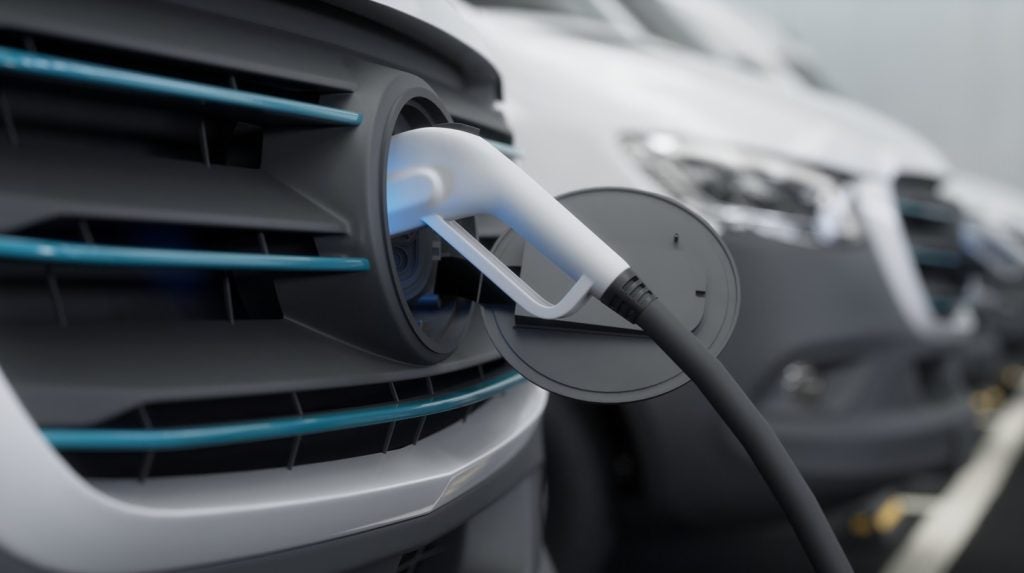
The efforts of brands like BMW, Mercedes-Benz and VW are increasingly centred around the volatile Chinese market – and it is not just about pushing more sales. Lorenzo Migliorato writes.
Like most other European and American carmakers, for years BMW Group has been manufacturing and marketing its vehicles for the Chinese through a 50-50 joint venture (JV) with a local player, namely Brilliance China Automotive (BCA).
As it happens, the market where BMW has been forced – by law – to operate through a partnership is also the carmaker’s single biggest: China accounted for a quarter of its deliveries in 2017, totalling 600,000 vehicles.
For global carmakers, China is a market they simply cannot afford to lose. When the country’s economy is in high moods, it regularly features in quarterly reports as “the main driver of growth”.
And during rough patches – such as at present, courtesy of the trade war – car stock holders get so spooked by lower deliveries that they immediately push the share price down, no matter how good other regions’ sales.
That is part of the reason why carmakers accepted ownership constraints, as long as they could get a slice of the country’s quickly evolving vehicle market. Now, the Chinese government plans to scrap foreign ownership quotas for local car ventures by 2022.

US Tariffs are shifting - will you react or anticipate?
Don’t let policy changes catch you off guard. Stay proactive with real-time data and expert analysis.
By GlobalDataBMW has been among the first of the global companies to take advantage of the changes, bringing its stake in the Brilliance JV to 75% – essentially taking full ownership of manufacturing and distribution for its brand in the country.
And Volkswagen, which currently holds 40% of its JV with FAW Group, has reportedly been looking to grow its equity share under the Chinese government’s blessing. In the eyes of some analysts, the liberalisation move is more symbolic than anything.
“We believe the potential impact is limited in the near term,” Moody’s wrote in an April note.
“Firstly, Chinese partners are unlikely to lower their stakes in JVs in the near term given the significant sales and profit contribution to their businesses.
“Secondly, typical auto-making joint ventures in China have contract terms of 30 years or more, with many having 10-20 years remaining. As such, current ownership structures in existing auto-manufacturing JVs are protected by JV contracts in the medium term.”
Nevertheless, Moody’s did say in a separate note that the increased stake in the BMWBrilliance JV would “enable BMW to better control the operations and decide on future strategy”.
Additionally, it said lower import duties – another of the Chinese government’s
pledges aimed at sustaining consumption – would help stimulate demand for higherpriced vehicles, which are often imported, and would in turn give a boost to aftermarket service revenues.
But sales are not the only way carmakers are looking to profit from China. They see huge potential for a higher penetration of financing and leasing – as well as a fertile ground for mobility services, which they know would have the backing of policymakers looking to abate congestion and pollution.
BUYING AND FINANCING
The sheer size of China’s car market stands in remarkable contrast to its severely underdeveloped motor finance services market.
According to KPMG, penetration of leasing contracts in China in 2016 stood at 7%, with the vast majority of contracts within consisting of what are called “lease-loans”, a hybrid product more reminiscent of HP, aimed at the financially excluded.
While a number of Western OEMs have been operating in the car leasing market through such lease-loan offerings, Groupe PSA was among the first to take its chances with the “pure” product, setting up a leasing JV with local partner DongFeng.
Unveiling the project in March 2017, the two companies stated that the leasing products would come “with or without purchase options”, explicitly differentiating them from the predominant offering in the market.
“They will represent a complementary full range of offers to the current financing solutions and will address a new usage of the automobile,” said Rémy Bayle, chief executive of Banque PSA Finance.
In an interesting twist, DongFeng PSA’s main competitors – as leasing becomes palatable to China’s middle class – will not be high street banks or other captives, but likely the tech giants that already dominate the country’s ‘walled garden’ of consumer financial services.
Didi Chuxing – officially ‘the Uber of China’ after taking over the latter’s local operations in summer 2016 – has grown its car services platform, whose offering includes full-service leasing, into a separate company.
The unit, Xiaoju Automobile Solutions, is worth an estimated $2bn (£1.5bn) to $3bn, sources told Reuters last year, and will now see an extra $1bn in investment from its parent company.
Some foreign car companies have opted to tap China’s consumer credit incumbents to get their financing and leasing products off the ground – at the same time leveraging their capabilities in online retail.
Ford – which recently spun off its China unit into a separate company – last year partnered with e-commerce giant Alibaba to offer online car browsing and HP through the T-Mall portal.
The advantage of partnering with Alibaba is multi-fold: the HP underwriting process relies on data that Alibaba has collected on the car buyer through its other financial products, and the monthly payments are processed through the group’s Alipay payment system.
In short, Ford uses Alibaba’s infrastructure to reach a wider customer base than it arguably would through its own local captive alone.
CAR SHARING & ROBO-TAXIS
With the average city’s population numbering in the millions, and with local authorities eager to reduce congestion and pollution, Chinese metropolises are ideal launchpads for car-sharing and ride-hailing services.
In September, Free2Move, Groupe PSA’s mobility services brand, launched a fully electric car-sharing service in Wuhan, population 10 million. Like PSA’s other operations in the country, it is operated as a JV with DongFeng, and the expansion plans are ambitious: the fleet is expected to grow from 300 vehicles to 3,000 by next year.
The foray made PSA – a newcomer to the mobility space in Europe – one of the few, privileged foreign automakers to operate a mobility platform of their own in China; BMW and Daimler already operate respective brands Now and Car2Go in the country.
And while the two German companies are now looking to merge mobility operations in Europe, Daimler is seemingly looking for an edge in China: in October, it signed a partnership with Geely – Volvo’s parent – for a car-sharing JV based around premium Mercedes-Benz vehicles.
Like Daimler, Geely already operates its own car-sharing platform in China’s cities, called CaoCao. As in financial services, automotive captives will have to compete with homegrown tech giants in the mobility services space too.
A number of minor players already operate around various cities, with monthly user numbers ranging from the tens of thousands up to the half-million mark. But it was Didi Chuxing, which already dominates the e-hailing space, that made a splash last year when it said it was pushing into car-sharing as well.
Didi’s strategy has been shrewd: rather than going it alone, it brought foreign carmakers on board for the project. The Renault-NissanMitsubishi Alliance, Toyota and Volkswagen are all part of the car-sharing project, and the latter has been reportedly in talks to supply and manage part of the services’ fleet.
The Didi collaboration also gives carmakers access to a huge trove of data collected through its ride-hailing business, which they can use to augment autonomous vehicle development.
For its part, a functioning robo-taxi fleet would be the Holy Grail for Didi: effectively, the company is doing in China what Uber has done in the US as it partnered with the likes of Volvo.
But VW is not limiting efforts to one partner: a few months ago it also joined a similar consortium with Baidu, another of the ‘big three’ in Chinese tech with Alibaba and Tencent. Not to be outshone, Tencent has said it will look into providing carmakers with connected car technology for future growth.
ELECTRIC VEHICLES
It is no secret that China’s government would like to see those battery-powered Electric Vehicles (EVs) on the country’s roads as soon as possible.
EVs are an area where European carmakers, long attached to their diesel and petrol sales, risk falling behind Chinese and Japanese brands.
If they want to get a foothold into the segment, they need the infrastructure to supply high-grade batteries – especially in the face of the demand Beijing has for EVs. Some have already moved in that direction.
The BMW-Brilliance JV plans a “major increase in capacity” at a factory dedicated exclusively to battery manufacturing.
And the BMW iX3 – the carmaker’s upcoming SUV and flagship EV, which was by no coincidence first unveiled in China – will be built in another plant right around the corner.
Volkswagen is not losing time either: the company said a factory – as per usual, a JV, with SAIC – exclusively dedicated to manufacturing the platform for its future EVs is to open by 2020 in Anting, near Shanghai.
“In this way, we emphasize the importance of the Chinese market for the Volkswagen Group,” chair Herbert Diess said in October.
There is little doubt that China’s market had become the main focus – and driver – of European carmakers’ cashflows.
A bigger question is whether the country will stay a walled garden, with its very specific rules – or whether it will end up affecting development of the carmakers’ home market in turn.







